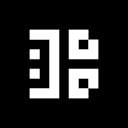const signInAndGetAccount = async (w3) => {
try {
const address = await w3.eth.getAccounts().then((data) => {
return data[0].toLowerCase()
})
return address
} catch (e) {
alert(`Please make sure you have Metamask installed : ${e.message}`)
}
}
const signMessage = async (message, address, w3) => {
// const message = "Hello World";
const from = address;
const params = [message, from];
const method = "personal_sign";
return await w3.currentProvider.request({
method,
params,
from,
});
};
export const SIGNING_TYPE = {
accessAuth: "access",
upgradeNft: "upgradeNft",
upgradeCollection: "upgradeCollection",
}
const signTypedData = async (data, w3, type) => {
const address = await signInAndGetAccount(w3);
let msgParams = "";
switch (type) {
case SIGNING_TYPE.accessAuth:
msgParams = `You are unlocking content via the Darkblock Protocol.\n\nPlease sign to authenticate.\n\nThis request will not trigger a blockchain transaction or cost any fee.\n\nAuthentication Token: ${data}`;
break;
case SIGNING_TYPE.upgradeNft:
msgParams = `You are interacting with the Darkblock Protocol.\n\nPlease sign to upgrade this NFT.\n\nThis request will not trigger a blockchain transaction or cost any fee.\n\nAuthentication Token: ${data}`;
break;
case SIGNING_TYPE.upgradeCollection:
msgParams = `You are interacting with the Darkblock Protocol.\n\nAttention: You are attempting to upgrade an entire NFT collection!\n\nPlease sign to continue.\n\nThis request will not trigger a blockchain transaction or cost any fee.\nAuthentication Token: ${data}`;
break;
default:
msgParams = `You are unlocking content via the Darkblock Protocol.\n\nPlease sign to authenticate.\n\nThis request will not trigger a blockchain transaction or cost any fee.\n\nAuthentication Token: ${data}`;
break;
}
return new Promise(async (resolve, reject) => {
try {
const signedMessage = await signMessage(msgParams, address, w3);
resolve(signedMessage);
} catch (err) {
reject(err);
}
});
}
export default signTypedData


